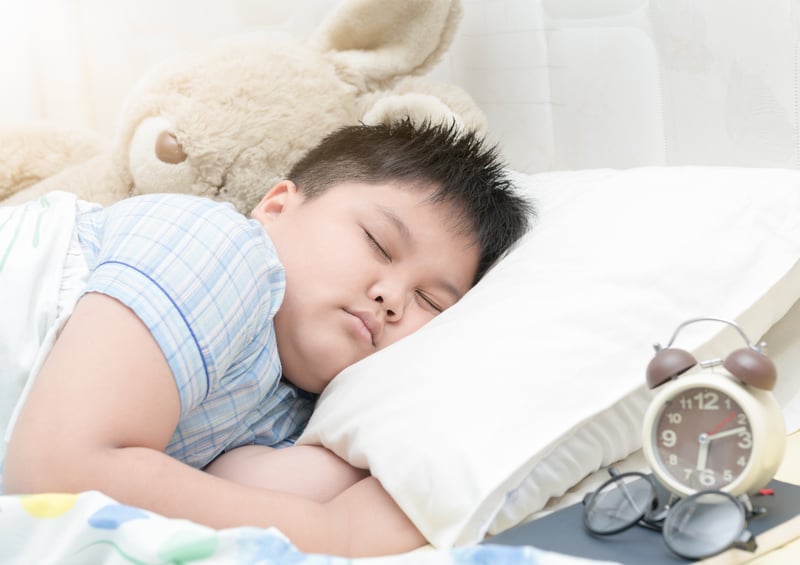Recursos del Paciente
Manténgase sano!
Better Sleep, Less Stress-Linked 'Acting Out' in Kids
- September 1, 2023
- Cara Murez
- HealthDay Reporter

If your child is acting out and you're looking for solutions, researchers at the University of Georgia's Youth Development Institute suggest better sleep might be the answer.
Getting more hours of slumber could reduce impulsive behavior in kids, their new study showed.
"Stressful environments are shown to make adolescents seek immediate rewards rather than delayed rewards, but there are also adolescents who are in stressful environments who are not impulsive,"said lead author Linhao Zhang, a fourth-year doctoral student in University of Georgia's College of Family and Consumer Sciences. "We looked at what explains that link and what makes some people differ from others. One mechanism we found is sleep."
While sleep is important for overall health, it can also factor into behavior.
To study this, researchers analyzed data from the Adolescent Brain Cognitive Development Study, which was funded by the U.S. National Institutes of Health.
The investigators used information from more than 11,800 children, aged 9 to 10. Results showed that lack of sleep and long sleep latency -- the amount of time it takes to get to sleep -- had a significant link to impulsive behaviors later.
The researchers checked on these sleep problems at multiple time points over two years. When children got less than the recommended nine hours of sleep or if they spent longer than 30 minutes trying to get to sleep, the authors found a strong link to impulsive behaviors later.
These behaviors included acting without a plan, seeking thrills or sensations, and lacking perseverance.
When there were not sleep problems, impulsivity was also less likely to be seen, the findings showed.
Zhang said that something called neurological hyperconnectivity, where adolescents' brains remain very active even when they were not actively engaged in tasks, also plays a role.
This study looked at the default mode network, which is a brain network related to goal-directed behaviors, finding a possible link to attention-deficit/hyperactivity disorder (ADHD). When this network was hyperactive during a resting state, it could exacerbate the link between stressful environments, sleep and impulsivity.
"We can look at the default mode network and emotional regulation regions,"Zhang said in a university news release. "It's also possible that this hyperactivity and ADHD are highly correlated, so in a future study we could test that in a more clinical setting. That could have great implications on intervention or counseling programs."
Zhang said this research, published in the August issue of the journal Sleep Health, suggests low-cost interventions can help with the psychological development of children facing at-home stressors.
"If you want to develop interventions for people in stressful environments, it's very costly, and sometimes it needs generational work to change,"Zhang said. "Sleep is a modifiable behavior, however, and these changes can be cost-efficient."
Zhang also pointed to the issue of school start times and teens, who have circadian rhythms that compel them to stay up later and sleep in.
"A lot of adolescents don't have enough time to sleep, and they are sleep-deprived. This study shows why it is important to promote longer sleep duration by delaying school start times or establishing routines so that adolescents know, 'OK, after this event, I'm going to bed,'"she added.
"For people who may be in disadvantaged environments, if we can provide some strategies that help sleep, it can have a positive impact, especially for adolescents that are at such a critical developmental stage for their brain development,"Zhang noted.
More information
The American Academy of Pediatrics has more on healthy sleep habits for kids.
SOURCE: University of Georgia, news release, Aug. 29, 2023

